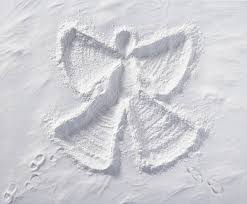
Friday. On the Internet, it’s historically a slow day. Why? A lot of folks have already started the weekend. Some take it off with regularity. Others leave for home early.
But now, people who used to work but no longer do because of the pandemic say things like, “I don’t even know what day it is anymore.”
OK, then. Call it Friday. A historically slow day.
One acquaintance told me she has dispensed with days of the week altogether. She says it’s Groundhog Day every day.
Bill Murray and Punxsutawney Phil would be pleased, as would the Buddhists, who are wondering if you are taking this “every day feels the same” opportunity to make yourself a better person.
Are you?
If your house is not chaotic with close-quartered family, you may be reading a lot. Trouble is, a lot of readers are concluding that books they read are “probably not the best choice, given present circumstances.”
I’ve seen this conclusion for most every type of book out there. My conclusion, then? It’s not the book. It’s the reader.
Man, does the first cup of coffee (black) satisfy the most. The second doesn’t quite match it, taste-wise. You can’t go home again. Thus spake Thomas Wolfe, forgotten author.
Speaking of, another friend of political bent emailed yet another “Who’s afraid of Thomas Wolfe” fear: maybe the United States can’t go home again, either. Or any country after this.
Seems thuggish autocrats (as he calls them) are using Covid-19 as cover to advance their agendas and consolidate their powers. It may be, by the time the virus lets up, that democracy (in so-called “democratic” countries) will be the biggest casualty. All while no one was looking. Or while everyone was distracted.
“Wisconsin is the harbinger in the U.S. That and the Supreme Court blessing, 5-4, for risking people’s lives to run a pandemic election that suppressed voter turnout and worked to the advantage of the powers-that-be. That’s Wisconsin-speak for ‘Republicans’.”
Then he said, “If you don’t know what that means for the country as a whole, then your wallet’s being picked while you’re smiling.”
Great. As if the pandemic weren’t bad enough, spider webs in my wallet are being picked while I’m trying to remember how to smile. Cue the Artful Dodger.
Shall I sum this up with a “Happy weekend, friends”? Nah. I can no longer summon the enthusiasm.
Rather, in honor of yet another Groundhog Day, the movie and the Buddhist metaphor, I’ll contemplate the Zen koan: “How much wood could a woodchuck chuck if a woodchuck could chuck wood?”
Questions are so much sweeter than answers, aren’t they?







